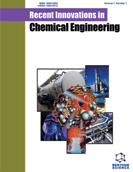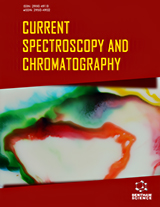Abstract
Diabetes Mellitus (DM) is a compounded, persistent illness symbolized by an increased range of glucose levels in the blood caused by cellular resistance to insulin action, insufficient insulin production by pancreatic -cells, or both. Type 1 Diabetes Mellitus (T1DM), the extremely widespread form of DM, is recorded for almost 85-90% of worldwide cases. T2DM is mostly common in middle-aged and older people, and its causes are multifaceted. The use of efficient and profitable solutions for DM screening is critical to ensure pre-identification and minimising patients' risk of acquiring the life-compromising illness. Identification of innovative biomarkers with test methods of DM is therefore critical in order to establish vigorous, non-invasive, pain-free, highly sensitive, and precise procedures for screening. The purpose of this review article is to mention and review all the necessary biomarkers that play a vital role in disease diagnosis and to highlight the present-day findings of the latest clinically validated and traditional biomarkers and procedures for determining them, which provide cost-efficient options for T2DM screening with early detection. It is concluded that various biomarkers, both conventional and innovative, go hand in hand to diagnose the DM of any type.
[PMID: 27622231]
[http://dx.doi.org/10.5001/omj.2012.68] [PMID: 23071876]
[http://dx.doi.org/10.2337/dc13-S067] [PMID: 23264425]
[PMID: 9803200]
[http://dx.doi.org/10.1016/j.diabres.2007.01.019] [PMID: 17343954]
[http://dx.doi.org/10.1177/193229681100500207] [PMID: 21527089]
[http://dx.doi.org/10.2337/diacare.27.2007.S84] [PMID: 14693935]
[http://dx.doi.org/10.7150/ijms.10001] [PMID: 25249787]
[http://dx.doi.org/10.1055/s-0034-1366278] [PMID: 25014088]
[http://dx.doi.org/10.4103/2230-8210.131184] [PMID: 24944931]
[http://dx.doi.org/10.1210/jc.2009-2433] [PMID: 20371663]
[http://dx.doi.org/10.2337/diaclin.27.4.132]
[http://dx.doi.org/10.2337/diacare.26.11.3160] [PMID: 14578255]
[http://dx.doi.org/10.2337/diacare.24.3.465] [PMID: 11289469]
[http://dx.doi.org/10.1016/j.diabres.2016.02.010] [PMID: 27107818]
[http://dx.doi.org/10.1097/COH.0b013e32833ed177] [PMID: 20978388]
[http://dx.doi.org/10.1602/neurorx.1.2.182] [PMID: 15717018]
[http://dx.doi.org/10.1016/j.molmet.2019.06.016] [PMID: 31500825]
[http://dx.doi.org/10.3390/ijms23116144]
[http://dx.doi.org/10.1373/clinchem.2016.255539] [PMID: 28062618]
[http://dx.doi.org/10.3390/biom11111589] [PMID: 34827587]
[http://dx.doi.org/10.1371/journal.pone.0120995] [PMID: 25973922]
[http://dx.doi.org/10.3390/ijms23010295] [PMID: 35008723]
[http://dx.doi.org/10.1016/j.omtn.2018.05.002] [PMID: 30195754]
[http://dx.doi.org/10.1016/j.metabol.2014.12.003] [PMID: 25726255]
[http://dx.doi.org/10.1016/j.omtn.2021.01.014] [PMID: 33614249]
[http://dx.doi.org/10.3390/cells8121533] [PMID: 31795194]
[http://dx.doi.org/10.1038/nrendo.2013.86] [PMID: 23629540]
[http://dx.doi.org/10.3389/fendo.2021.630032] [PMID: 34603195]
[http://dx.doi.org/10.15386/mpr-1247] [PMID: 31086840]
[http://dx.doi.org/10.1507/endocrj.K07E-089] [PMID: 18445997]
[http://dx.doi.org/10.3390/bios12090687] [PMID: 36140073]
[http://dx.doi.org/10.1002/edm2.376] [PMID: 36121204]
[http://dx.doi.org/10.3389/fimmu.2022.950049] [PMID: 36248900]
[http://dx.doi.org/10.1016/j.ebiom.2020.103062] [PMID: 33096487]
[http://dx.doi.org/10.1371/journal.pone.0111463] [PMID: 25353659]
[http://dx.doi.org/10.1016/j.diabres.2020.108233] [PMID: 32497744]
[http://dx.doi.org/10.1016/j.jdiacomp.2018.11.010] [PMID: 30594413]
[http://dx.doi.org/10.1007/s11892-022-01453-4] [PMID: 35267140]
[http://dx.doi.org/10.1089/dia.2012.0315] [PMID: 23617251]
[http://dx.doi.org/10.1111/pedi.12258] [PMID: 25652226]
[http://dx.doi.org/10.1007/s10047-019-01097-4] [PMID: 30805746]
[http://dx.doi.org/10.1089/dia.2012.0055] [PMID: 22731793]
[http://dx.doi.org/10.2147/DMSO.S100074] [PMID: 28860833]
[http://dx.doi.org/10.34171/mjiri.34.28] [PMID: 32617267]
[http://dx.doi.org/10.3389/fendo.2020.570628] [PMID: 33133018]
[http://dx.doi.org/10.1371/journal.pone.0010883] [PMID: 20526369]
[http://dx.doi.org/10.1016/0009-8981(75)90481-7]
[http://dx.doi.org/10.1080/10408363.2017.1414143] [PMID: 29239245]
[http://dx.doi.org/10.1016/j.genm.2009.09.006] [PMID: 19850242]
[http://dx.doi.org/10.1016/j.diabres.2014.04.013] [PMID: 24837145]
[http://dx.doi.org/10.2337/dc16-0232] [PMID: 27388475]
[http://dx.doi.org/10.1007/s00125-018-4611-5] [PMID: 29663011]
[http://dx.doi.org/10.1111/jdi.12345] [PMID: 26221513]
[http://dx.doi.org/10.1007/s00125-011-2052-5] [PMID: 21267537]
[http://dx.doi.org/10.2337/dc14-3008] [PMID: 25877811]
[http://dx.doi.org/10.1002/dmrr.2394] [PMID: 23381919]
[http://dx.doi.org/10.1007/s00125-007-0604-5] [PMID: 17333112]
[http://dx.doi.org/10.6065/apem.2015.20.2.74] [PMID: 26191510]
[http://dx.doi.org/10.1177/1932296814567227] [PMID: 25591856]
[http://dx.doi.org/10.1186/s12902-020-00653-x] [PMID: 33228610]
[http://dx.doi.org/10.1038/msb.2012.43] [PMID: 23010998]
[http://dx.doi.org/10.4093/dmj.2017.41.6.466] [PMID: 29199411]
[http://dx.doi.org/10.1038/s41598-019-46187-8] [PMID: 31273286]
[http://dx.doi.org/10.1155/2015/526201] [PMID: 26064983]
[http://dx.doi.org/10.7326/0003-4819-137-4-200208200-00011] [PMID: 12186517]
[http://dx.doi.org/10.1136/bmjdrc-2016-000194] [PMID: 27026810]
[http://dx.doi.org/10.1371/journal.pone.0077251] [PMID: 24204780]
[http://dx.doi.org/10.1038/nm.3862] [PMID: 25985365]
[http://dx.doi.org/10.1210/me.2007-0167] [PMID: 17652184]
[http://dx.doi.org/10.1371/journal.pone.0092238] [PMID: 24643166]

















.jpeg)









